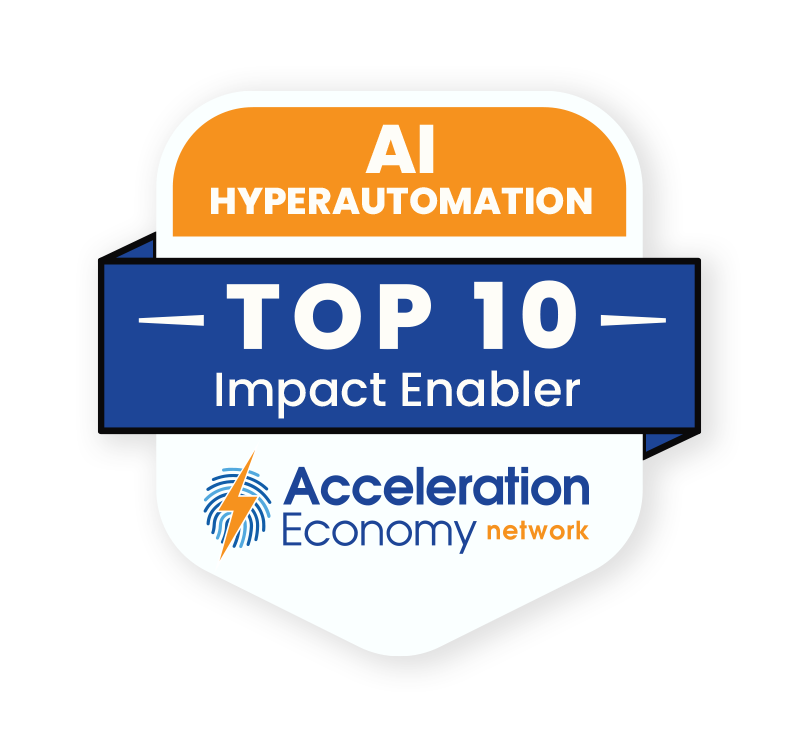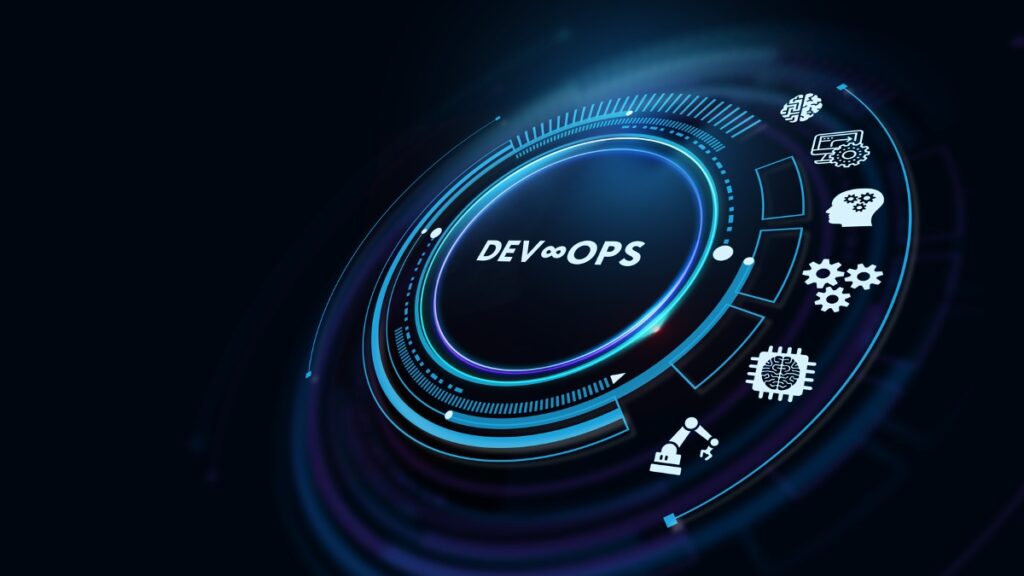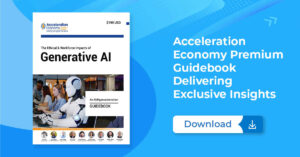OpenAI’s GPT-4, Google’s PaLM 2, and countless other generative AI models have made significant waves in the technology industry. As these large language models (LLMs) take hold, companies including Microsoft are extending them with custom co-pilots. Generative AI, powered by these LLMs, has the potential to revolutionize various disciplines, including application development and the DevOps pipeline.
While much has been said about generative AI’s ability to accelerate application development through code generation, its impact on DevOps, particularly DataOps, deserves further attention. Data management is a critical aspect of DevOps, and generative AI can bring several benefits to streamline and enhance DevOps and DataOps processes.
Below, I’ll explore how generative AI can assist the DevOps experience and highlight how it can help data management. From code generation, continuous integration and continuous delivery (CI/CD) enhancements, as well as debugging, generative AI is positioned to reduce manual toil and streamline modern data-driven IT operations.
How Generative AI Can Aid DevOps
LLMs like ChatGPT can make engineering workflow more agile if used properly. And many low-code platforms are already adding generative AI to automate DevOps processes. Here are some of the ways generative AI can accelerate the DevOps pipeline.
- Code generation: Generative AI can automate code generation tasks by creating snippets, templates, or even entire programs. This saves developers time and effort, allowing them to focus on more complex tasks. For example, Outsystems is incorporating ChatGPT to accelerate code generation as part of its Project Morpheus.
- Improving code quality: Debugging and log analysis are time-consuming tasks in DevOps. Generative AI can assist by analyzing log files and correlating error messages with known issues. Companies like Harness have introduced AI development assistants that leverage generative AI to improve coding quality and developer productivity.
- Optimize CI/CD processes: Generative AI can help optimize CI/CD processes, ensuring safer pipelines. GitLab, for instance, has partnered with Google to integrate LLMs into its CI/CD platform, enhancing DevSecOps workflow efficiency and identifying vulnerabilities in the CI/CD process.
- Automatically generate scripts and perform DevOps actions. LLMs can suggest relevant tooling and deployment models based on the use cases they’re trained on. Some AI tools can even perform DevOps actions like infrastructure provisioning, making the process more automatic. For example, Kubiya has constructed a ChatGPT for DevOps that enables you to trigger DevOps functions and flows with written commands.
- Testing: Generative AI can help quality assurance by recommending fixes, generating synthetic data for testing purposes, and identifying production bugs or edge cases. Projects such as Robin AI and Duet AI for Google Cloud leverage generative models to automate code reviews and offer coding assistance.
- Anomaly detection: Trained on normal system patterns, generative AI can identify actions that deviate from those patterns, aiding in anomaly detection and site reliability engineering.
Generative AI can accelerate DevOps in many areas. What’s more, initiating these actions could become even easier. With natural language processing (NLP), many of the above actions could be performed using simple written commands.

Which companies are the most important vendors in AI and hyperautomation? Check out the Acceleration Economy AI/Hyperautomation Top 10 Shortlist.
How Generative AI Can Aid DataOps
Back-end engineers typically juggle multiple databases and database types ranging from relational databases to NoSQL to distributed SQL databases. As such, applying consistent DevOps processes could improve efficiency and performance while reducing errors. Here are some ways generative AI and LLMs could assist these efforts.
- Suggest database architecture: With its diverse knowledge, an LLM can suggest a database architecture and deployment model suitable to your unique environment. For example, I asked ChatGPT to design a high-level architecture to deploy an internal relational database to run on a private Azure instance.
- Data cleansing and transformations: LLMs can help with data cleansing tasks by suggesting data transformations, identifying and fixing anomalies, or handling missing values. This can improve the quality and reliability of datasets used in data operations. AI can also be used to validate that data conforms to common standards.
- Generate sample schemas and dummy data. Generative AI can generate sample schemas that follow predictable formats to improve the developer experience. In addition to schemas, generative AI can create dummy entries for databases. This could be helpful in development and testing environments for applications that handle sensitive user data.
- Make database integration more seamless: Generative AI can aid data integration tasks by suggesting data mappings and transformations, or even generating ETL (extract, transform, load) code based on requirements. This can accelerate data processing workflows and reduce manual effort.
- Make inferences on large data sets: These models can assist in data exploration by generating summaries, visualizations, or insights based on given datasets. They can help analysts and data scientists better understand the data and identify patterns or correlations. Allowing AI to work on data can also improve observability.
Database DevOps is becoming key for digital transformation. Therefore, it’s good to assess new automations that can safely accelerate database operations. What’s more, like DevOps, generative AI can also facilitate chat interfaces for data querying and exploration. This enables data teams to access and analyze data more intuitively and efficiently.
Benefits of Generative AI For DevOps and DataOps
A GitHub survey finds that 92% of developers already use AI in their workflows. There is no shortage of enthusiasm for incorporating generative AI into nearly all areas of tech. And there are countless ways generative AI and LLMs could accelerate efforts around DevOps and DataOps.
Utilizing generative AI in DevOps could result in shorter timeframes for application delivery and improvement. AI trained on proven case studies could generate templates that accelerate the scaffolding of CI/CD pipelines. And code analysis using generative AI could help spot vulnerabilities throughout the software development lifecycle.
Furthermore, generative AI appears set to enhance data operations, from transforming incoming data to writing boilerplate code for integrating databases. These advancements should accelerate how businesses consume data and garner valuable insights from the data their systems create.
Cautionary Note
The sky is the limit when it comes to generative AI, and the above examples only scratch the surface of what’s in store for DevOps and DataOps. AI is not likely to replace DevOps engineers since they are in such high demand, but it will likely assist their efforts.
Although generative AI is set to raise the bar significantly, it will require guardrails to maintain cybersecurity as it proliferates throughout the coding profession. For instance, due to privacy and legal concerns, some organizations have outright banned the use of ChatGPT internally.

Acceleration Economy practitioner analyst and AI Index Report host Toni Witt also emphasizes the importance of guardrails with tools like ChatGPT, as those tools can create bias or propagate misinformation. “If these tools replace traditional search engines, they will hold the ability to impact our worldview; these tools can produce misinformation and tilt public perception,” he says.
IT leaders should always be aware of the risks inherent in new software automation and consider whether the benefits outweigh those risks.








